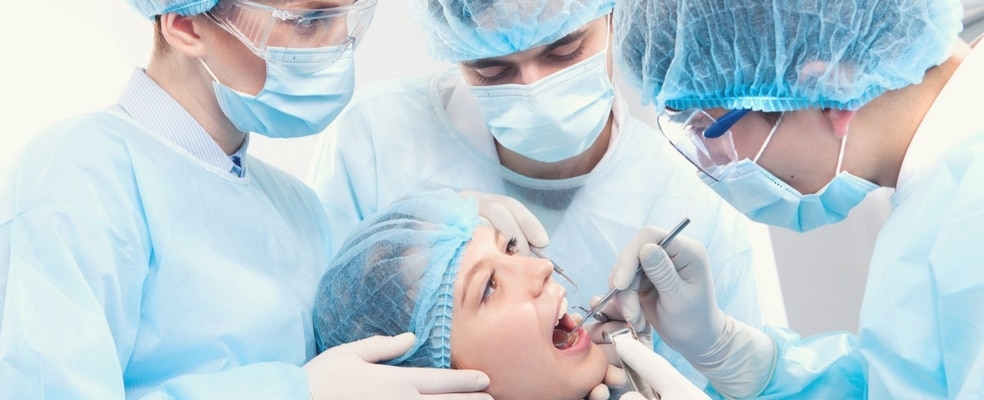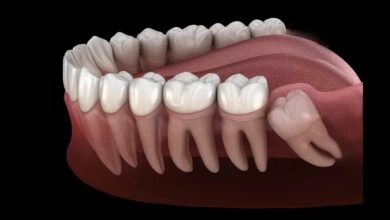Dental Surgery: What is it about and why you may need it

Taking good care of our oral health goes beyond just brushing, flossing, and rinsing. It is highly recommended that an individual without major oral health problems pays the dentist a visit at list every six months, while those with conditions affecting the teeth, gums, jaw, or any part of the mouth should book a dental appointment at least once every quarter of each year. Dennis Tan Dental Surgery, a dental clinic in Raffles Place can help see if your oral health is in tip top shape or if you need surgery.
What is dental surgery and why you may need it
Dental or oral surgery is any type of procedure done to operate on a part of the mouth, such as the teeth, gums, and jaw or facial structures surrounding this area. Dental surgery is done in cases like:
- Bone loss in the jaw
- Broken teeth
- Bumps or lumps in the mouth
- Cosmetic improvements
- Diseases affecting the gums
- Facial injuries
- Impacted teeth
- Oral cancer
- Sleep apnea
- Temporomandibular joint disorders (TMD)
- Widespread tooth decay
Types of Dental Surgery
There are several types of dental surgery, but some of the most common procedures done are the following:
- Endodontic
- Oral and maxillofacial surgery
- Orthodontic
- Periodontics
- Prosthodontics
Endodontic surgery is a procedure that involves the root or pulp of the tooth. A popular endodontic operation is root canal treatment.
Oral and maxillofacial surgery specializes in reconstructive surgery. Procedures of this kind cover operations done in the areas of the face, jaw, mouth, head, neck, and oral cavity. Cosmetic surgery and facial trauma surgery fall under this category.
Orthodontics is another type of specialization in the field of dentistry. This deals with teeth and jaws that are not properly aligned. Methods that are performed under this branch of dentistry include jaw surgery and the use of dental appliances that may be fixed or removed like:
- Braces and clear aligners
- Fixed or removable retainers
- Orthodontic headgear
- Palatal expansion appliance
Periodontics or periodontology specializes in the study and treatment of teeth structures, including the conditions and diseases that affect them. Periodontal surgery is done when an individual suffers from severe periodontitis, which is an infection located beneath the gum line. When not treated, this disease can cause complications, such as bleeding gums, gum damage and recession, tooth and bone loss, and even diseases that affect the heart.
Prosthodontics or prosthetic dentistry focuses on dental prostheses. A dental practitioner that is an expert on this branch of dentistry specializes in teeth replacement and cosmetic restoration. The most common dental prosthetics used include dental bridge, crown, implant, veneers, and dentures.
Who can perform dental surgery?
A dental surgery may be performed by an oral and maxillofacial surgeon or a periodontist, depending on the condition being treated. These dental professionals have undergone additional education and training to earn their specific specializations following their dental school graduation.
How to know if you need dental surgery
Getting a comprehensive dental consultation is the best way to know whether you need dental surgery or not. If you have been experiencing discomfort in any areas of your mouth, face, head, or neck, there may be a possibility that this is caused by a disease or condition that can be addressed by a dentist through dental treatments or surgery. Likewise, a dental surgery may help if you would like to improve your bite, smile, and other facial features cosmetically.
Preparing for a dental surgery
So, your dentist recommends that you undergo a dental surgery to improve your oral health. What next? Here are some tips on how to prepare for your dental surgery.
- Ask questions about your procedure.
Dental surgery is not like a walk in the park. It is normal to feel uneasy after receiving the news that you need one. To put your mind at ease, remember to ask questions about the procedure that you are undergoing. These are some questions that you can ask your dental healthcare provider:
- What are the benefits of this type of surgery
- How is the procedure performed?
- How long will the procedure take?
- What will be used to manage discomfort or pain during the procedure?
- Do I need to take time off from work or school to recover following the procedure?
- Are there food or medications that I should avoid before the surgery?
- Should I come with a companion on the day of my surgery?
- What are the risks and complications that may happen during and/or after the surgery?
- What should I do for aftercare?
- How much will the surgery cost and can it be covered by dental insurance?
- Strategically choose a date on when your dental surgery should be done.
Choosing the date of your dental surgery is very important and should be done with careful thinking. The date should be able to give you enough time for preparation. Consider factors that may be affected by this event, such as your work or school schedule, extracurricular activities, family time, and even your recovery period.
- Prepare a meal plan.
Anticipate that your mouth will feel sore after your surgery. This means that you cannot enjoy consuming the usual food and beverages that you like as these may complicate your healing. Foods that are hard to chew are definitely off limits after surgery. Dentists generally recommend a soft diet, so head on to the grocery and stock up on soup, yogurt, mashed or pureed fruits or vegetables, broths, eggs, smoothies, oatmeal, etc. Remember to keep your diet nutritious during this time as your food will also play an important role as you heal.
- Wear comfortable clothes.
Undergoing dental surgery can be distressing enough, so at least wear something comfortable on the day of your surgery. Remember that you will be lying down the whole time in an air-conditioned room—you might want to skip downing on loose clothing, dresses, or shorts. Long-sleeved shirts are discouraged as well as the clinic nurses will need easy access to your arms when doing medical procedures related to your surgery.
- Arrive early on the day of your surgery.
Arriving at the dental clinic at least half an hour before your surgery will be of great help, especially if there are documents that you need to comply with prior to your procedure.
Dennis Tan Dental Surgery – Dr Dennis Tan
Head Office:
The Arcade
11 Collyer Quay
#03-28, Singapore 049317
+65 6438 5622
+65 8874 7681 (Whatsapp)



